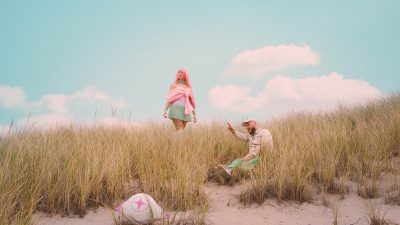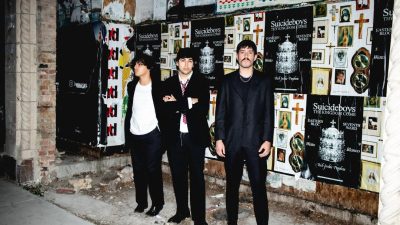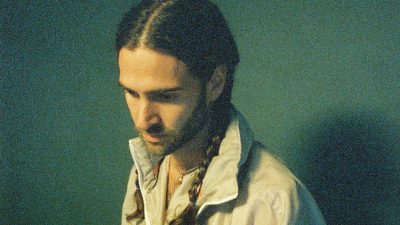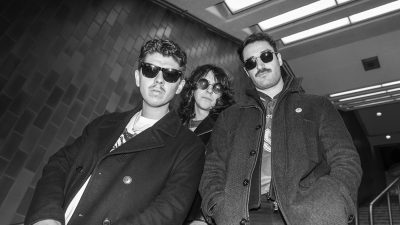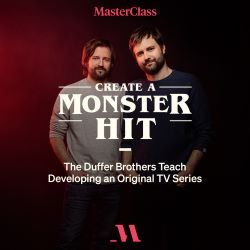The Entertainer. An interview with Chilly Gonzales
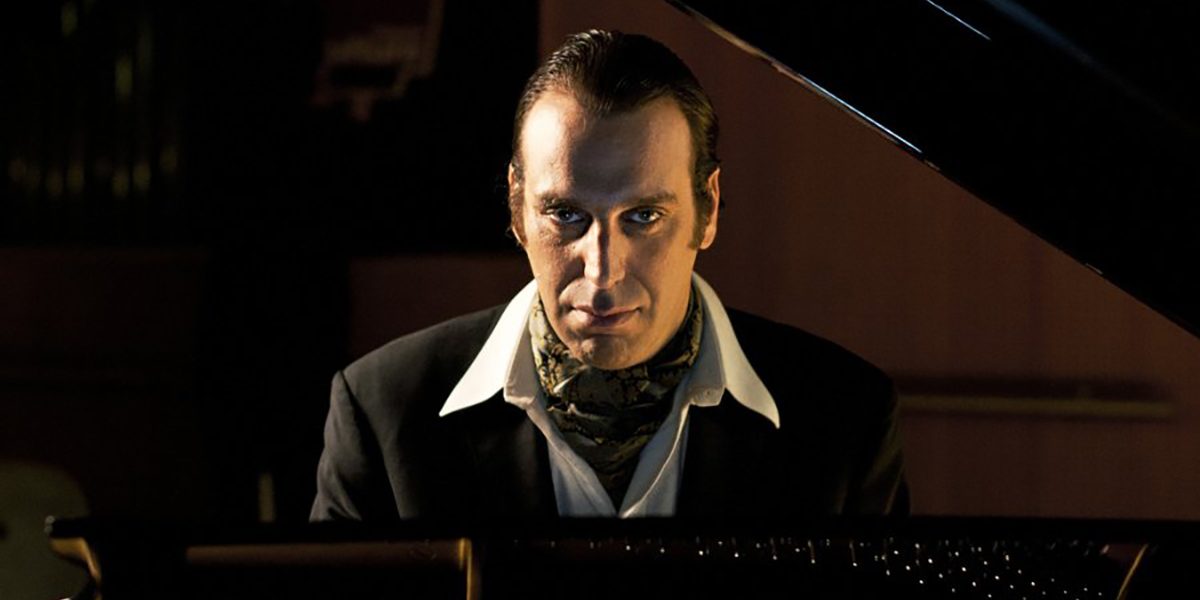
text: Michael Raine
Piano virtuoso, composer, producer, rapper, rocker, comedian, actor, director, and jazz master. To most, Chilly Gonzales is an incredibly difficult artist to summarize, but if you ask the man himself, it’s quite easy: he’s simply an “entertainer.”
As the 40-year-old self-professed musical genius, born Jason Beck in Montreal, Chilly has earned worldwide acclaim for being one of the best piano players of his generation but also for turning the popular idea of what a “piano virtuoso” should look and sound like on its ear.
As such, he demands an unusual amount of patience and open-mindedness from his fans. From one album to the next, Chilly’s music swerves between classical, rock and roll, jazz, dance, hip-hop, and pop. He’s even written and starred in a satirical existential film about a chess master (with cameos from fellow Canadians and long-time friends Feist and Peaches), entitled Ivory Tower.
In concert, Chilly dons a bathrobe and slippers and punctuates the performance with stories, rants, and jokes, engaging the audience in a performance that lies somewhere between concert, comedy show, and musical lesson. But through it all, his uncanny ability on the piano remains the one constant.
This self-styled, larger-than-life character and world record holder for longest solo artist performance (27 hours, three minutes, and 44 seconds) is now back on the road with his infamous Piano Talk Shows. Also, later this year he’ll be releasing Solo Piano II, the follow-up of his critically acclaimed 2004 instrumental album Solo Piano. Luckily for us, Chilly agreed to answer a few of Quip’s questions. Here’s what he had to say:
Michael: When did you know you could turn your talent on the piano into a career and how did this change your outlook on life?
Chilly Gonzales: The moment I learned what a career was, it was obvious it should be something I loved and was good at. It wasn’t long before the piano became that focus. And when I learned that I could entertain people with it, I couldn’t believe my luck.
MR: Depending on the song, you incorporate elements of almost all genres – rock, dance, rap, jazz, classical, and pop – into your music – very unusual for a classically trained piano virtuoso. As an artist, how did you arrive at the bizarre combination of sounds?
CG: I’m a creature of pop music who just so happened to get interested in the science of music. But I never embraced classical training. It was just a way to get better so I could join the ranks of my heroes on Much Music. I just tried to learn the gestures of great European music so I can make more colorful American music (pop, which includes jazz, rap, and “rock” as you call it).
MR: How did your time in the ’90s’ indie band Son influence both your music and career as a solo performer?
CG: It was the origin of my supervillain story, where the lightning hit the lab, so to speak. I had a traumatic, dramatic couple of years in which I lost my idealistic illusions about being an artist. I decided to be an entertainer, even if I carried a grudge in my heart about it. Maybe in a perfect world, I could be a polite, well-behaved, grateful artist without an ego. But for better or worse, I live in the real world.
MR: How much of your onstage persona is your natural self and how much is a character you play?
CG: One is an entertaining exaggeration of the other. That’s the idea anyway; my therapist might have a more nuanced answer.
MR: Montreal has a long and storied artistic history and continues to have a thriving music scene. As well, I’ve been told by other musicians that there is an “anything goes” mentality to the Montreal arts scene. How did living and going to school in Montreal influence your own work?
CG: I left Monty when I was eight, so the influence would be subconscious at best. Later, when I returned as a McGill composition student, I felt like I was that much closer to Europe compared to Toronto. As far as “anything goes,” as a creative mantra, I think that’s a terrible attitude to be proud of. Creativity is about limits. Maybe in a sense of lifestyle, Berlin and Montreal and cheaper big cities have an “anything goes” advantage.
MR: Why did you decide to move to Paris?
CG: Career move. Going pro in Europe. It couldn’t be done in Berlin.
MR: In past interviews, you’ve criticized government grants for artists. At the recent Canadian Music Week conference, artists in attendance were regularly encouraged by speakers and panelists – both Canadians and not – to take advantage of the grants that the Canadian government offers unsigned artists. Why would you discourage a struggling artist from accepting a government grant so they could afford to tour, and how does this differ from selling a song to a commercial just for the paycheque?
CG: The difference is that a company like Apple paying me for Never Stop reflects a reality of usefulness for my music.
The difference is that Apple makes its decisions based on perceived or projected market appeal. The government makes its decisions based on what they think should be market appeal. As in Artist X deserves to be heard but no one wants to hear it – let’s give him money. Artist X now no longer feels motivated to make his music actually listenable.
He has been given a fish, and in the case of a commercial, Apple is teaching me to fish, and so I learn what parts of my musical personality actually connect with people.
Government money should be put into music and arts education, instead of handed to artists without an audience. And I think musicians can go on tour without grants if they’re clever and committed. It’s what most musicians have done since the dawn of time.
English and American bands go on tour without subsidies, and their music industries are suffering less than ours because, I’m sad to say, the musicians don’t have the attitude of expecting a handout.
This is a right-wing notion, and I just want to clarify that I don’t feel this way about essential commodities like clean air, housing, and health care… but music is not an essential commodity. It’s a fucking trifle so let’s not regulate it, okay?
MR: You’re following up 2011’s largely rap album The Unspeakable Chilly Gonzales with an instrumental album Solo Piano II later this year. How do you determine what kind of album you’re going to make? How concerned are you with maintaining an audience or fan base from one project to the next?
CG: I think of my career as a screenplay, and [I] think, What would make a surprising and satisfying next scene? Some scenes complicate the plot, some simplify it. I would say I’m going from a complicated scene to a simpler one right now.




